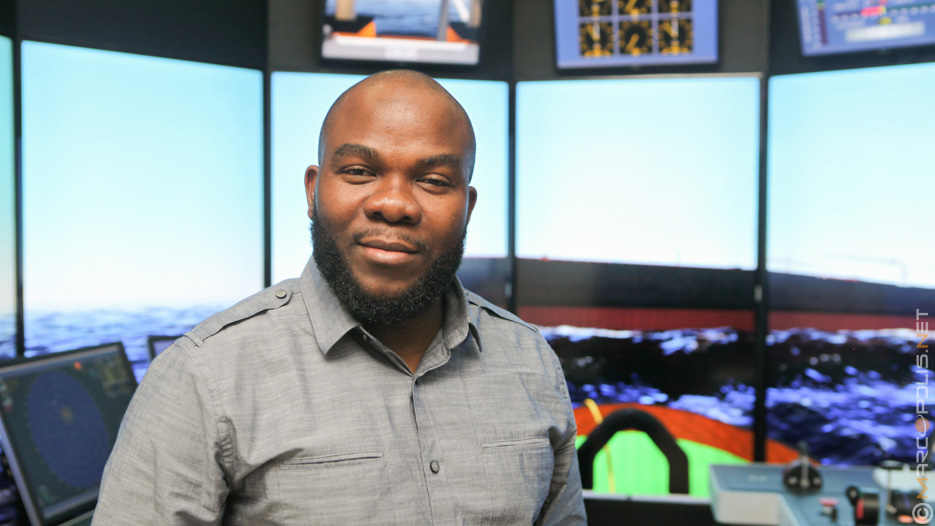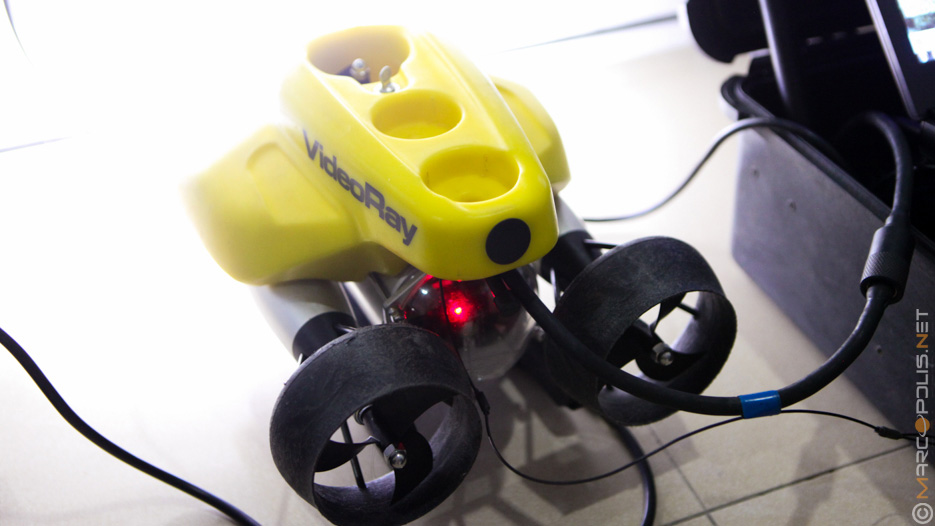Best Maritime Training Centre in Africa: PEM Offshore Simulation Center
“This is the biggest centre in Africa. There is a little one in South Africa which is not even half of what we have in one room. There is another little one in Egypt but this is the biggest in Africa. In Nigeria it is the only Offshore Vessel Simulation Centre. Ghana has a simulation centre. They do cadet training but not advanced simulation training like us.”
Interview with Philips Matthew, President at PEM Offshore Group

How would you assess the industry at the moment?
The industry is slow. The oil prices of course are driving the entire industry and the entire global economy is pretty low. It went from 120 dollars to be struggling between 40 and 50 dollars now. People are not investing. Some assets have not gone back to work and some rigs have left the field. A lot of international and local companies have let people go. But over the last two months, we have seen a pick up a little bit. We wonder if it will remain like that for a long time or not. The OPEC secretary general said that he is afraid that the entire world will suffer a global shortage of supply of oil and gas products because at the moment nobody is investing money, everyone is holding back, so production is not up to capacity. What will happen now is that there will be less supply and excess demand. He said that hopefully we will get up to the 200 dollars per barrel level although when that happens it will drive the entire globe to a very high inflation period but we are not seeing that coming yet. It is very slow. It is not as fast as we thought it would be. Most of us that invested a lot of money are barely struggling to get by. I think West Africa is affected a lot by this but Nigeria is blessed because our cost of production is always low. Very few fields do up to 30-35 dollars a barrel, most of the oil we do is around 8 to 18 dollars a barrel.
What is PEM OFFSHORE role within the sector?
Our drive has been to give what are called cutting costs initiatives. People running courses here used to spend millions of naira to book a flight, they spent a lot of money to get a visa and the course fees cost them a lot of money as well, thousands of dollars, they stay in a good hotel and it was all done overseas. Bringing a school back home has meant a lot of cutting costs for the individuals who go for training and the oil companies because the oil companies used to bring in a lot of expatriates to run all the assets that our local guys who are trained now can do. In the end it affects the entire gross production costs. Bringing in an expatriate you have to process their visa, they charge more; they need security and insurance because they are coming to work in West Africa etc. Working with our local guys, they find it more comfortable, first of all there is no threat of kidnapping and it creates jobs and we meet our social and economic development quota for Nigeria. Furthermore, the delays and downtimes are being reduced for offshore operations because it takes barely a minute or two to mobilise our local expertise as opposed to waiting two weeks or a month for an expat to get a visa to come in from overseas. Also sometimes the oil companies are spending money whilst waiting for these guys to come in but if you have the expertise from the country that will cut those costs. We also do our own services which are technical maritime engineering services for the oil and gas companies. We have ROVs (remotely operated vessels), which are unique. What it used to cost an operator to run an ROV was probably about 2 to 3 million dollars but with us it will cost them less than 20,000 dollars to run my ROV because I don’t need a DP (dynamic positioning) vessel or any Launch And Rescue Equipment to launch my ROV. Also my guys that are here, about eight of them, are well trained to operate my unique ROVs. In the long run, all of our services are geared towards reducing costs and maximising safety for the oil and gas industry.

Tell us about the different equipment that you have here in the training centre.
We have a DP2 advanced simulator. We also have a basic DP simulator. They are all K-POS 8.2 series which is the top range. We also have the ASD tractor tug and basic ship handling tug bridge simulator. We can achieve about 18 to 20 courses from these three simulators. We start with basic induction DP familiarisation courses and we can do advanced simulator courses. We also offer refresher DP courses. We do time reduction courses here too as well as ECDIS (Electronic Chart Display and Information Systems) courses. We also do radar courses here and bridge resource management as well. We do basic ship handling, advanced ship handling, basic tractor tug and advanced tractor tug. The course running right now is advanced tractor tug for a special program that we are running with a company from the Netherlands. We run a lot of courses. We also run some audio-visual courses with ABS. we deliver a lot of courses here.
Who are your clients? Who do you target mostly?
We target the IOCs, Offshore Vessel Operators, Rig Owners and Operators, Crewing Agencies as well as Government Scholarship Boards. We work with international and local academies. Our major targets are the seafarers themselves, the crew, people who are willing to work offshore or onshore to support offshore operations, people who work in the offices, who work in maritime logistics, the vessel owners, the rig owners, barge owners, dredge owners. The product running right now is owned by a dredge owner from Netherlands working in the Nigerian Waters. We have a special service here for the oil companies, for ports and for maritime organisations whereby we simulate the actual environment. We can simulate the port of Lagos and teach the port authority how to move big rigs and vessels in and out for example as well as for the oil companies where we can simulate their field which can help to reduce their downtime because with good simulation they know what to do and where to go and how to lay out their rig or pipes without delays or destroying any assets on the seabed. It is unlimited what we can do with our simulators. We have in house trained nav-techs who put our packages together for us using the Hydrodynamic capabilities of our Modern Kongsberg Simulators.
Our appeal is for the government to recognise us. We have been able to get here mainly because Chevron Nigeria Ltd has been a very big supporter of Pem Offshore.
With regards to the surrounding region and other countries in the area, what is unique about your centre? Do you have any direct competition in the surrounding countries? Are you trying to attract companies from the region?
This is the biggest centre in Africa. There is a little one in South Africa which is not even half of what we have in one room. There is another little one in Egypt but this is the biggest in Africa. In Nigeria it is the only Offshore Vessel Simulation Centre. Ghana has a simulation centre. They do cadet training but not advanced simulation training like us. We are the loan players right now in this industry.
What is your current strategy? Are you trying to expand the centre or trying to get more clients from abroad?
The strategy is to bring in more partnerships from overseas and improve the in-country capacity to what we have overseas. We own a simulation centre in Houston as well and the one in Houston is not quite as big as this one but it is our affiliate, owned 100% by this company. Our aim is to bring in international players and to let this be a hub for professional engineering maritime oil and gas services to the entire sector. That is our goal. We have alliances with major manufacturers and major players in the industry such as Granherne KBR, Interocean UK, ABS Consulting West Africa on project basis, Parker Hannifin, Redfox Environmental, RKI Instruments just to name but a few. We also have a very good relationship with Kongsberg Maritime who the OEM / Supplier of all our Simulators both in Nigeria and Houston. We have a good customer relationship with them. We have and still work with a whole lot of international big names to be able to deliver the kind of products that you can’t find otherwise locally. Our view is: local content, global vision.
With regards to these partnerships, is there any specific area that you are looking into now?
We have just developed a relationship with VideoRay, an ROV OEM that has tremendous unique system that delivers robust service. The remotely operated vehicles and also UAVs, (unmanned area vehicles) which can launch like drones and go underwater and save people money instead of launching teams of divers underwater or using other ROVs. We are using unique UAVs and ROVs to deliver our services.
Is there anything specific you would like to highlight about the centre or the industry?
Our appeal is for the government to recognise us. We have been able to get here mainly because Chevron Nigeria Ltd has been a very big supporter of Pem Offshore. It was like a dream when we went to Chevron; they gave us a contract without ever seeing anything on the ground. They believed in my dream and they knew that we were professionals. They had worked with us for over 4 years and so they said they would give us the support that we wanted. Unfortunately the government and the banks in Nigeria who you meet and share your dreams with don’t want to back you up. What we are asking for is support from our fellow Nigerians, for them to embrace what we are doing and to support us. Every Nigerian who is endeavouring is crying out for the international companies to support them, if it wasn’t for them I don’t think we would be anywhere. The new laws created and set up by the government and the Local Content Development and Monitoring Board are doing their best. They give us their support. We are trying our best to be close to the maritime industry, they are coming along but as I said we would like more support from every group and particularly from the government. For instance, because we set up a simulation centre in the US, the Veteran administration came and audited us and said “You know what? If you can build this place with your money, then if we give you money you will be able to do more” and they approved us for a grant of 3 million dollars and another for 800,000 dollars for us to build a more robust and bigger simulator so that we can be able to train people. That is what the government should do. We have written to every government agency but they barely ever write back and when they come here, they take photos and then go and it’s back to voicemail, you call them and you get voicemail. We are looking for them to embrace us. They can help the international oil companies who pay their taxes and their dues but still look after companies like ours.
FAIR USE POLICY
This material (including media content) may not be published, broadcasted, rewritten, or redistributed. However, linking directly to the page (including the source, i.e. Marcopolis.net) is permitted and encouraged.